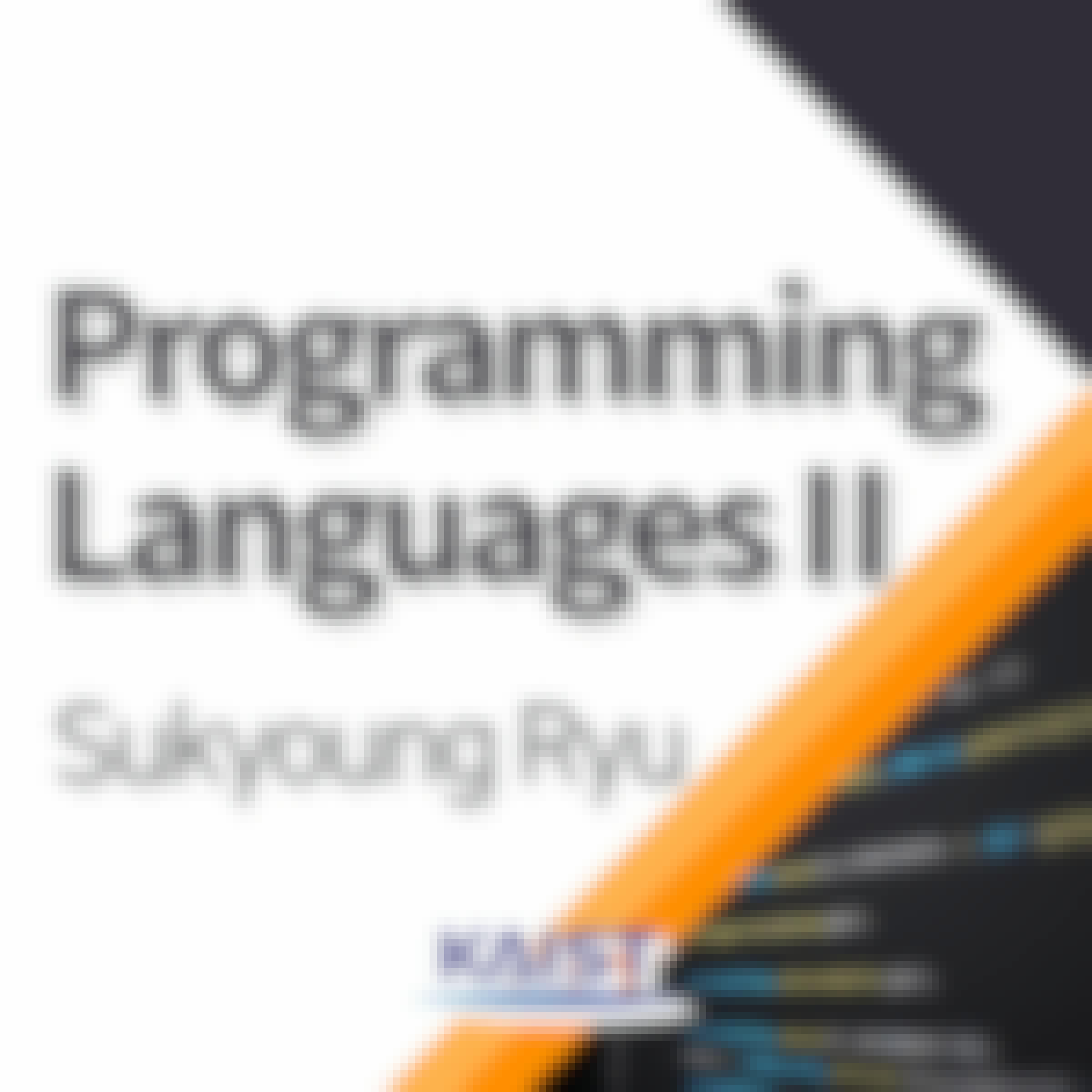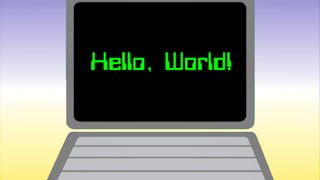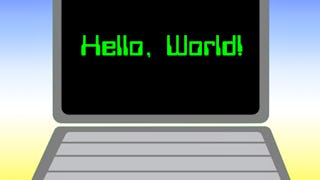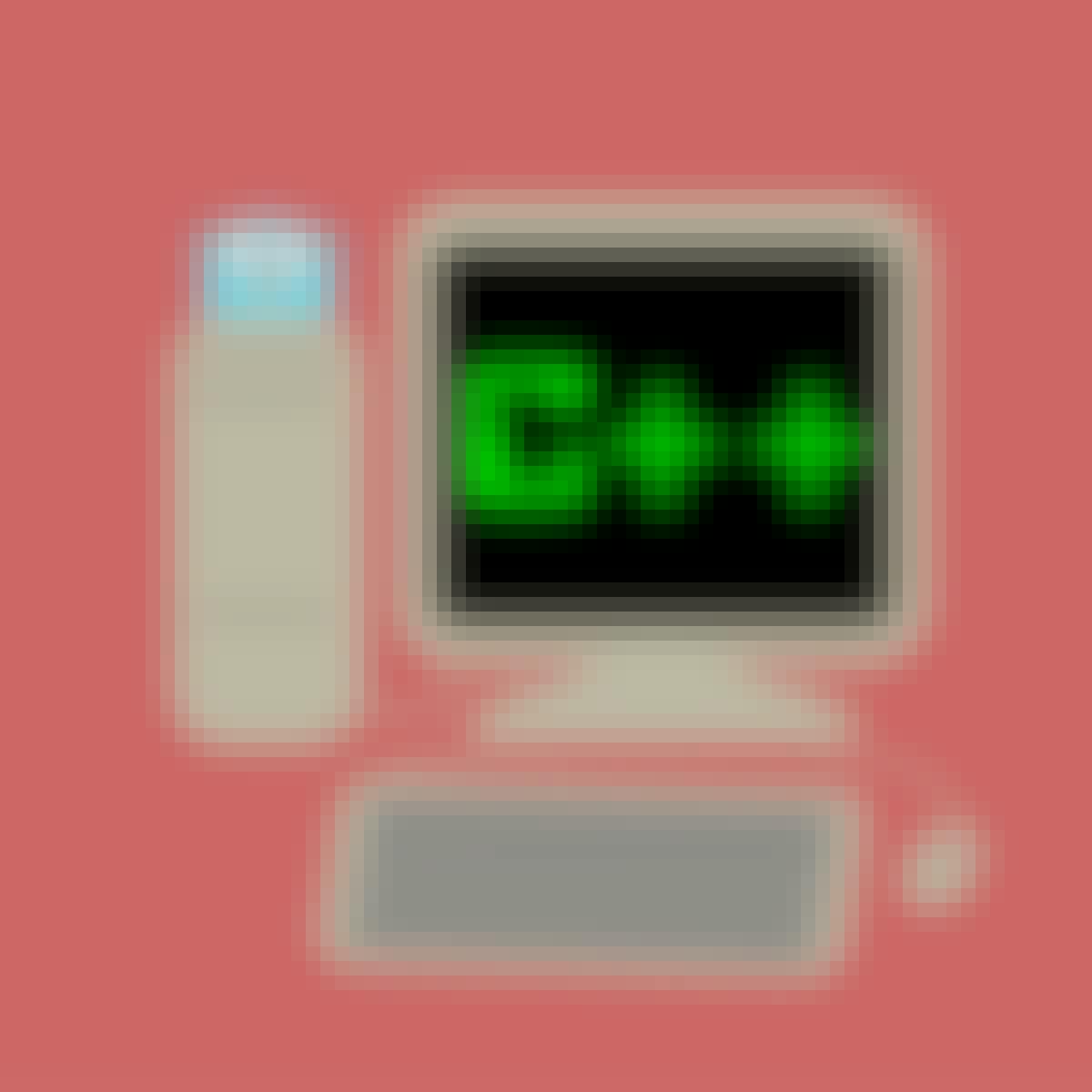Filter by
SubjectRequired
LanguageRequired
The language used throughout the course, in both instruction and assessments.
Learning ProductRequired
LevelRequired
DurationRequired
SkillsRequired
SubtitlesRequired
EducatorRequired
Explore the Compilers Course Catalog

Korea Advanced Institute of Science and Technology(KAIST)
Skills you'll gain: Scala Programming, Other Programming Languages, Computer Programming, Programming Principles, Theoretical Computer Science, Scripting Languages, Software Design, Extensible Languages and XML
 Status: Free Trial
Status: Free TrialUniversity of California, Santa Cruz
Skills you'll gain: C++ (Programming Language), Go (Programming Language), Debugging, C (Programming Language), Data Structures, Object Oriented Programming (OOP), Software Design Patterns, Object Oriented Design, Code Review, Programming Principles, Computer Programming, Unit Testing, Algorithms, Command-Line Interface, Program Development, Integrated Development Environments, Software Testing, Computer Science, Computational Thinking, Graph Theory
 Status: Free Trial
Status: Free TrialUniversity of California, Santa Cruz
Skills you'll gain: C++ (Programming Language), Debugging, C (Programming Language), Object Oriented Programming (OOP), Software Design Patterns, Code Review, Data Structures, Computer Programming, Algorithms, Command-Line Interface, Programming Principles, Program Development, Computer Science, Computational Thinking, Integrated Development Environments, Graph Theory, Artificial Intelligence, Software Technical Review, File Systems, Game Design
 Status: Free Trial
Status: Free TrialDuke University
Skills you'll gain: Debugging, Maintainability, Programming Principles, Algorithms, Software Testing, Program Development, C (Programming Language), Pseudocode, Computational Thinking, Software Engineering, Simulations, System Programming, Data Structures, Software Development, Computer Programming, Command-Line Interface, Operating Systems, Development Environment, User Interface (UI), Data Import/Export
 Status: Free Trial
Status: Free TrialUniversity of California, Irvine
Skills you'll gain: Go (Programming Language), Object Oriented Programming (OOP), Algorithms, JSON, Programming Principles, OS Process Management, Functional Design, Data Structures, Other Programming Languages, System Programming, Development Environment, Software Design, Remote Access Systems, Software Installation, Operating Systems, File Management, Program Development, Computer Architecture
 Status: Free Trial
Status: Free TrialUniversity of Michigan
Skills you'll gain: C (Programming Language), C++ (Programming Language), Object Oriented Programming (OOP), Data Structures, Programming Principles, Algorithms, Computer Programming, Software Design, Application Security, Other Programming Languages, Python Programming, System Programming, Java, Performance Tuning, Numerical Analysis, Unix, Computer Science, Debugging
 Status: Free Trial
Status: Free TrialSkills you'll gain: Rust (Programming Language), Data Structures, Development Environment, Performance Tuning, Package and Software Management, Blockchain, Web Servers, Web Development, Programming Principles, Algorithms, Performance Testing, Software Visualization, System Programming, Distributed Computing, Data Management, Computer Programming Tools, Web Scraping, Software Design, Software Testing, Capacity Management
 Status: Free Trial
Status: Free TrialUniversity of California, Santa Cruz
Skills you'll gain: Debugging, C (Programming Language), Code Review, Data Structures, Computer Programming, Program Development, Computer Science, Computational Thinking, Integrated Development Environments, Software Technical Review, Algorithms
 Status: Free Trial
Status: Free TrialUniversity of California, Santa Cruz
Skills you'll gain: Go (Programming Language), Debugging, C (Programming Language), Data Structures, C++ (Programming Language), Object Oriented Design, Object Oriented Programming (OOP), Code Review, Programming Principles, Computer Programming, Unit Testing, Algorithms, Command-Line Interface, Program Development, Integrated Development Environments, Software Testing, Computer Science, Computational Thinking, File Management, Integration Testing

University of Colorado Boulder
Skills you'll gain: Software Configuration Management, Embedded Software, Embedded Systems, Git (Version Control System), Version Control, System Programming, Build Tools, Software Development Tools, C (Programming Language), Development Environment, Software Design, Hardware Architecture, Debugging, Command-Line Interface
 Status: Free Trial
Status: Free TrialUniversity of London
Skills you'll gain: Computer Science, Debugging, Development Environment, Computer Systems, Web Applications, Graphing, Javascript, Computer Networking, Computational Thinking, Theoretical Computer Science, Human Computer Interaction, Hardware Architecture, Program Development, Arithmetic, Computer Graphics, Operating Systems, Applied Mathematics, Mathematical Modeling, Computer Programming, General Mathematics
 Status: Free Trial
Status: Free TrialUniversity of California, Santa Cruz
Skills you'll gain: C++ (Programming Language), Go (Programming Language), Data Structures, Object Oriented Programming (OOP), Software Design Patterns, Debugging, Object Oriented Design, Programming Principles, Unit Testing, Algorithms, C (Programming Language), Program Development, Integrated Development Environments, Computer Programming, Software Testing, Computer Science, Graph Theory, File Management, Artificial Intelligence, Integration Testing
Compilers learners also search
In summary, here are 10 of our most popular compilers courses
- Programming Languages Ⅱ: Korea Advanced Institute of Science and Technology(KAIST)
- C, Go, and C++: A Comprehensive Introduction to Programming: University of California, Santa Cruz
- Coding for Everyone: C and C++: University of California, Santa Cruz
- Introductory C Programming: Duke University
- Programming with Google Go: University of California, Irvine
- C Programming for Everybody: University of Michigan
- Rust Programming Masterclass from Beginner to Expert: Packt
- C for Everyone: Programming Fundamentals: University of California, Santa Cruz
- C and Go: Classical and Modern Programming: University of California, Santa Cruz
- Introduction to Embedded Systems Software and Development Environments: University of Colorado Boulder










